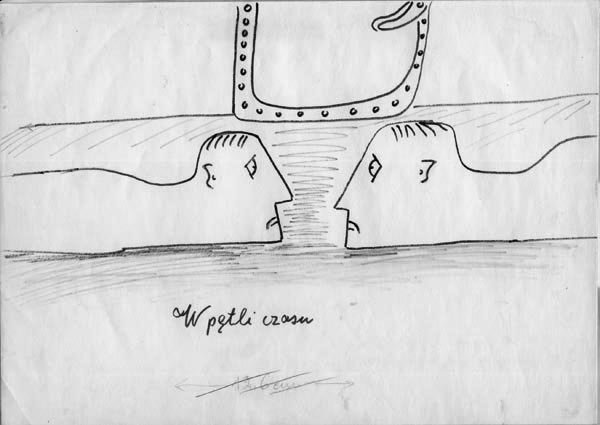Announcement
Open Call to Participate in Ringa Workshop in Latvia

Rupert presents “Ringa”, a week-long workshop / residency, conceived and curated by Alex Davidson and Jacquelyn Davis (Rupert’s Educational Program) with key presentation by Laura Preston on 28 July – 2 August, 2014. This project is a collaboration between “kim?” Contemporary Art Centre (Riga), Rupert (Vilnius), Vilnius Academy of Arts, Lithuanian Interdisciplinary Artists’ Association and Top Association for the Promotion of Cultural Practice (Berlin). This program is organized within the RĪGA 2014 European Capital of Culture program “Waiting for… (Archaeology of an Idea)”.
One theory for the origin of the city of Riga’s name is that it is a corrupted borrowing from an archaic Livonian word. ‘Ringa’ meaning ‘loop’, refers to the ancient natural harbor formed by the tributary loop of the Daugava river. This short etymological tracing indicates the depths that the Livonian language remains embedded in the current language and culture of the city. Another reason to borrow this word is for its spectral presence (the last native speaker of the moribund Livonian language, Grizelda Kristina, died last year, aged 103). The past, in Riga, plays and replays, in a feedback loop as the city’s cultural and political acoustics. This workshop/residency’s focus is on what it means to be emplaced in a city with its own particular histories that shape the language and experience of its present.
“You never step in the same river twice” [1]
Is the experience of the same film, text, or walk different each time? Testing this proposition, the activities of the workshop will be structured according to another reflection of the ‘loop’ and the mathematical concept of the Möbius strip. Activities will test out forms of beginning and ending at the same coordinates, and responding to loops or strips of context-specific interest from creative, visual and writerly perspectives. Films may be watched and rewatched, a walk taken more than once, or a text written multiple times. These activities will seek to zero in on the process of interpretation itself; in the small and overlooked details that constitute semantic, associative and historical meanings in language. We are asking the participants of the workshop to help us design these interpretative activities to expose the etymological, constitutive and often political renderings of Riga itself.
“Curiously enough, one cannot read a book: one can only reread it. A good reader, a major reader, an active and creative reader is a rereader[2].”
This statement from Vladimir Nabokov prompts Zadie Smith to examine the process of rereading. ‘The novels we know best have an architecture’[3], Smith reminds us, and by rereading, we reenter a building, exploring its rooms, hallways, stairs and gardens. It is through this process of rereading, of closely inspecting the architecture of the meaning of words, and other small moments in language and experience that their broader implications might come into focus.
There will be several invited speakers to the workshop, but the participants themselves will comprise its backbone. Participants will be invited to lead one short event or activity during the week that responds to the workshop’s key propositions, as well as engages with the city of Riga in some form. His or her proposed activity will form the criteria by which he or she is accepted to join the program. Travel, accommodation and a small per diem will be covered for each participant to and from other European regions.
The activity of the workshop will center on art writing, and the potential of writing as an art-making process. Special attention will be given to the process of excavating the literal, and historical meanings and resonances of words, as a way to deviate from dominant interpretations, as well as the relationships between the past and present of these words and their relationship to specific places and cultures – in particular, Riga. During the week long workshop there will be talks, activities lead by the workshop’s participants and organizers, as well as time allocated to generating work. During the final day this work will be presented and discussed. A reading list will be suggested prior to the workshop, providing further material for the discussions that will take place.
Application deadline for the Ringa laboratory is June 29. For statements, please use our online application form. Invited international artists/curators/writers will be granted travel costs and accommodation.
The laboratory is partly supported by: Nordic Culture Point, Culture Program 2007-2013 and Lifelong Learning Program (Grundtvig).
Event program and full tutor’s list to be announced soon!
Image credits: “In the time loop” by Stanisław Lem
[1] As well as known to be a Latvian proverb, this is a quote from the Greek philosopher, Heraclitus, and it can be found Disney’s Pochahontas.
[2] Vladimir Nabokov, ‘Good Readers and Good Writers’ in Lectures on Literature.
[3] Zadie Smith, ‘Rereading Barthes and Nabakov’ in Changing My Mind.